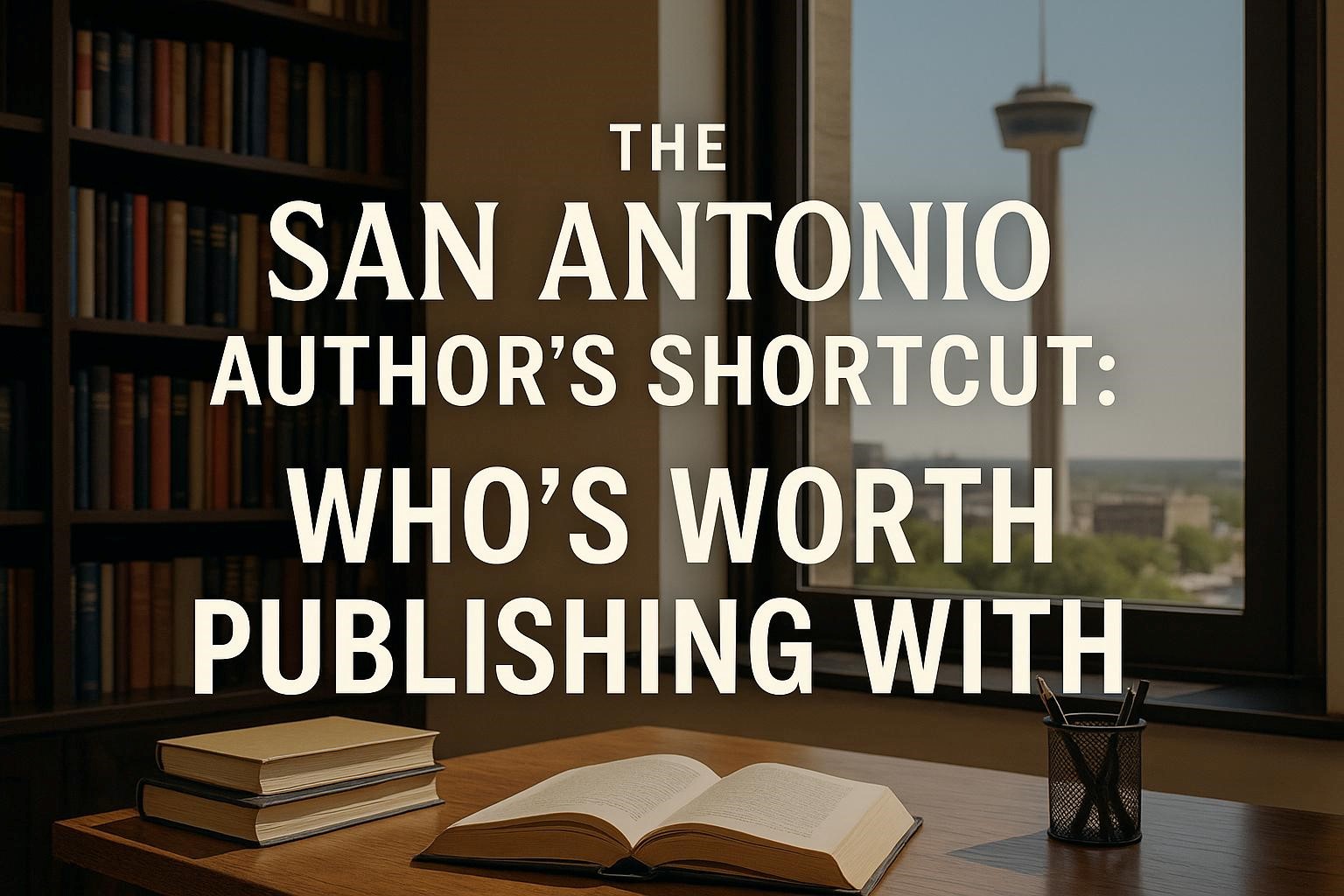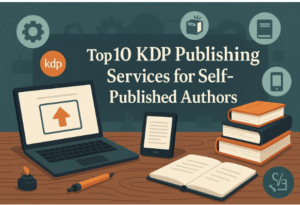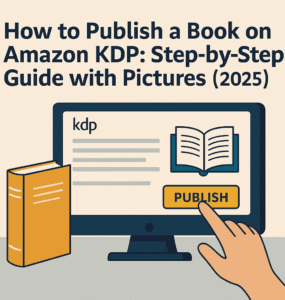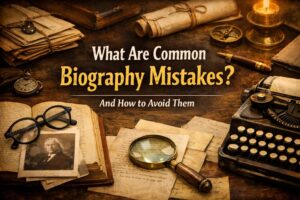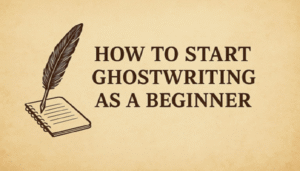Introduction
A few years back, when I was living in San Antonio, I had a hard time finding a decent publisher for my book. The city, despite its historical significance, seemed drawn back from the literary front. However, after some dedicated research, I realized that the city’s literary scene is truly hopeful and versatile, encouraging writers of every genre. That is, if one strives to look beyond its taco joints and Tex-Mex clichés.
So yes, here’s to all new authors: typing “The End” isn’t the end—it’s the start of a weird new game called please-take-my-book. And in this game, San Antonio might just be your secret weapon.
Now I know that not all publishers are created equal. Some will ghost you after a query letter. Others? Hidden gems with passionate editors who still believe in real storytelling. So the leading publishers in San Antonio aren’t just printers—they’re partners, collaborators, launchpads.
This guide is for you. You’ll get the names, the pros, the cons, and the cold truth about who’s worth your time. Whether you’re writing about business, memoirs, or Martian invasions, there’s a publisher in the River City that might just be the perfect fit.
Why Publish Your Book in San Antonio?
You don’t need a Brooklyn loft and a literati friend group to get published. Some of the most compelling books today are coming from cities with real stories and real people; places like San Antonio.
This isn’t just some flyover town with a couple of bookstores and a poet on a unicycle. San Antonio has become a legitimate home base for authors looking to launch, not just dream. Why? Because the bones of a great book scene are here—deep history, cultural richness, community support, and yes, actual readers.
A City With Stories Built In
San Antonio is soaked in stories. Every street, every mission, every mural tells one. It’s a city layered in history, from Spanish colonialism to modern Tejano culture. Publishers here know how to work with material that comes from that. Whether you’re writing historical fiction, memoir, poetry, or something offbeat, local publishers are tuned into that voice.
That matters. Because the book publishing services in San Antonio aren’t trying to squeeze you into a marketing funnel—they’re often more invested in authenticity. That means editors and publishers who actually understand what makes your book yours, not just what makes it sell in a Chicago airport bookstore.
A Readership That Actually Reads
Let’s be honest: some cities have readers. Some have influencers. San Antonio has readers. People who show up to readings, who ask smart questions, who still care about physical books. That’s gold for a debut author.
This city’s readers span genres. One week you’ll see a packed poetry night at a coffee shop. The next, a children’s author doing signings at a farmer’s market. There’s a hunger here for new voices—especially voices that reflect the city’s diversity. So whether you’re writing a cross-cultural love story, a bilingual children’s book, or a local history that’s never been told, someone in San Antonio wants to read it.
A Community That Shows Up
If you’re the kind of writer who thrives with support (read: you’re human), San Antonio’s literary ecosystem will feel like oxygen. There’s a real feel of community here. Not just writers talking to other writers, but publishers, editors, illustrators, event organizers—all crossing paths and helping each other out.
Events like the San Antonio Book Festival aren’t just photo ops. They’re networking gold. They’re where new authors meet publishers, where editors scout talent, where book deals are whispered over tacos. If you’re serious about building your career, it’s hard to beat a place where people still believe writing matters.
You’ll also find writer meetups, critique groups, workshops, and conferences geared specifically toward local and regional authors. That kind of face-to-face access is rare in the publishing world, where everything else is done through cold emails and hope.
Big Fish, Smaller Pond
In New York, you’re one manuscript in a sea of ten thousand. In San Antonio, you’re a real contender—especially if you’re working with premium book writers in San Antonio who know how to position your work. Collaborating with local ghostwriters or editors who understand both your genre and the local publishing landscape can give you a serious edge.
It’s not about lowering your standards. It’s about raising your chances. The right local team can help you polish your book, target the right publishers, and pitch your work in a way that lands.
It’s Not Just Regional—It’s Strategic
Here’s what most writers don’t realize: publishing locally doesn’t mean you stay local. Many San Antonio publishers have national distribution channels, hybrid models, or partnerships that extend your reach. Think of San Antonio not as your end point, but your launch pad.
If you want to publish somewhere that understands you, supports you, and gives your book a fighting chance—this city is more than ready. It’s not just a place to print pages. It’s a place to build momentum.
What Makes a Great Publishing Company?
Not all publishers are after royalties—but let’s be honest, some are. Others just don’t know what they’re doing. The best ones? They’re your co-pilot. And when your book is your baby, you don’t hand it over to someone who just skimmed the manual.
So what separates a good publisher from a great one—especially in a place like San Antonio? You’ve got options. But before you start Googling submission guidelines, here’s how to tell if the house you’re pitching is actually worth the postage.
Editorial Brains (and Backbone)
Every strong publishing company is built on editing. That means having editors who can spot bloat, tighten prose, push back when needed—and still keep your voice intact. You want a team that understands the why behind your book, not just the how.
Working with one of the finest book editors in San Antonio isn’t just about grammar. It’s about collaboration. You want someone who’ll question your choices in a way that makes your story stronger, not sterile. The best editors are half cheerleader, half surgeon.
And if a publisher isn’t offering real editorial feedback as part of the deal? That’s a red flag the size of Texas.
Genre Matters—A Lot
Let’s say you’ve written a sci-fi thriller. Submitting it to a press that only publishes poetry collections is like asking a jazz band to cover Metallica—it’s not gonna end well. Great publishing companies know their lane. They have taste. They have focus.
A good match means they’ve published books like yours before—and done them justice. Don’t be afraid to dig through their backlist. If it’s all cookbooks and you’ve written a post-apocalyptic fantasy, keep scrolling.
Author Involvement (Without Micromanagement)
You want a publisher who respects your vision and lets you be part of the process—but doesn’t leave you doing everything yourself. Great publishers are transparent about timelines, decisions, and royalties. They don’t vanish for six months and then send you a PDF with Comic Sans on the cover.
You’ll want to ask: Will you get input on the cover design? Will you see proofs before printing? Are changes possible if something’s off? If the answers are vague or overly corporate-sounding, walk away. The best partnerships feel like, well, partnerships.
Reach That’s Worth Something
It’s one thing to get your book printed. It’s another to get it in the hands of people who weren’t at your launch party. Distribution reach matters. A great publisher should have established networks—local bookstores, online platforms, maybe even national distributors.
Some local publishers are great for getting your book into regional shops and festivals. Others are connected enough to get it reviewed in trade publications or listed in national databases. Figure out where you want your book to go—and make sure your publisher can help it get there.
Real Marketing Support (Not Just a Tweet)
Look, every publisher says they’ll market your book. But “marketing” can range from a well-oiled strategy to one Instagram post and a prayer. Ask specifics. Will they run digital ads? Set up interviews? Pitch to media? Help with launch events?
The best publishing companies have in-house or partner teams who understand promotion—not just production. If you’re looking for full-spectrum support, you might also explore book writing services in San Antonio that include everything from ghostwriting to launch strategy.
How We Chose These Top San Antonio Publishers
To be honest, Google can tell you who exists. It can’t tell you who’s any good. That’s where we come in.
This list wasn’t tossed together after a casual scroll or based on who had the prettiest website. We dug deep—into reviews, author testimonials, published catalogues, editor profiles, and in some cases, actual books sitting on actual shelves.
What We Looked At (And Why It Matters)
We started with the obvious: reputation. Not just the 5-star fluff, but the meaty feedback from authors who’ve been through the full publishing process—from submission to shelf.
Then came editorial quality. Because no matter how good your draft is, it still needs editing. And the best publishers? They either offer top-tier editing in-house or partner with the kind of pros who live for clean sentences and character arcs that actually arc.
In fact, several publishers on this list are closely tied to standout book editing services in San Antonio, meaning your manuscript won’t just be skimmed for typos—it’ll be sculpted by people who know what they’re doing.
Transparency: No Smoke, No Mirrors
We also looked at how open publishers were about their process. Do they clearly outline their submission steps? Do they break down costs, timelines, or royalty structures in plain English (not in cryptic “industry speak” that leaves you Googling terms for two hours)? The best publishers don’t make you guess—they tell you upfront what you’re getting into.
Author Experience: The Good, the Weird, and the “Run.”
Author feedback was gold. Some publishers had glowing reviews across the board—authors praising their editors, their timelines, and how easy they were to work with. Others… not so much. A few had red flags: missed deadlines, ghosting after contract signing, or books left floating in retail limbo.
If enough authors said “run”—we ran.
Published Works: Real Proof
Last but not least, we checked out their actual catalogue. What kind of books are they putting into the world? Are the covers professional? Are the titles getting reviews? Are they in local stores, on Amazon, in libraries?
We weren’t looking for Pulitzer material. We were looking for clean layout, smart design, solid writing, and a catalogue that shows a publisher knows their audience. If their books looked like they were printed in someone’s garage in 2003, they didn’t make the list.
Top 5 Book Publishers in San Antonio
Let’s not sugar-coat it—choosing a publisher is like dating. There are good ones, sketchy ones, and a handful of standouts that actually deserve your trust. If you’re looking to publish, these top-tier book publishers in San Antonio have the receipts to prove they’re not just in it for the ego trip or the paycheck.
Some are niche. Some are more versatile. All of them have something solid to offer. So whether you’ve got a Western epic, a YA fantasy, or a family memoir in the works, here are the top players to consider.
1. Writers of the West
Let’s start with the most prestigious one. Relatively new to the literary horizon, Writers of the West is a full-service publishing and ghostwriting firm with offices in Houston, LA, and New York. They’ve been around since 2010, and in that time they’ve helped over 2,500 authors craft more than 170 best‑sellers across 10+ genres.
What they do:
- Ghostwriting, book writing, editing, proofreading, and marketing—then actual publishing.
- They support clients globally with full-cycle services: draft-to-release.
- Strong track record on review sites—30 Trustpilot reviews average 4.7/5; many describe them as “efficient,” “detail-oriented,” and “professional”.
Pros:
- One-stop shop: writing, editing, ghostwriting, and publishing.
- High client satisfaction—reviews highlight responsiveness and collaborative spirit.
- Experience across genres: memoir, business, fiction, spirituality—you name it.
Cons:
- They operate on a premium service model—the minimum project cost is around $5k.
- Focused on getting the author’s voice right, so might need more input from clients.
Best For: Authors who want an all-in-one team with ghostwriting and full-publishing capabilities, strong project management, and a proven track record.
2. Trinity University Press
This one has an academic backbone—and it shows. Trinity University Press publishes books with intellectual weight and cultural relevance, but with enough accessibility that you don’t need a PhD to get published. Their catalogue ranges from environmental writing to memoirs to regional nonfiction, and the quality of production is consistently excellent.
Pros:
- Prestige of being tied to a respected university
- High editorial standards and professional design
- Solid national and academic distribution channels
Cons:
- Submissions are competitive and selective
- Strong tilt toward nonfiction over fiction
Best For: Writers with thoughtful nonfiction projects—especially if you have academic credibility or a strong local angle.
3. HPN Books
HPN is where local history meets visual storytelling. They specialize in city profiles, museum-style books, and rich photographic content. The hybrid publishing model gives you creative control, while still offering professional support from cover to layout.
Pros:
- Beautiful design and layout for image-heavy books
- Hybrid model offers flexibility and author involvement
- Well-known in the regional history space
Cons:
- Not suitable for fiction or genre writers
- Hybrid publishing often means upfront costs
Best For: Authors with visually-driven narratives—think photo books, commemorative projects, or local cultural histories.
4. Cross & Hammer Publishing
These folks are a bit of a wildcard—in the best way. They accept a broad range of genres, from sci-fi and fantasy to self-help and spiritual memoirs. What makes them stand out is their transparency: you’re looped in during every step, from edits to cover design.
Pros:
- Open to a wide variety of genres
- Offers strong author communication and transparency
- Mix of traditional and hybrid packages
Cons:
- Limited reach compared to larger publishers
- Marketing support can vary depending on your package
Best For: Indie authors who want more control over the publishing process without going fully DIY.
5. Corona Publishing Co.
Corona has been around the block. Established in the ‘80s, they’ve carved out a name for themselves in educational publishing and children’s books. If you’re writing a middle-grade novel or a classroom-friendly title, they know what to do with it—and they know how to get it into schools and libraries.
Pros:
- Decades of experience with a focus on children’s and educational content
- Strong ties to local bookstores and libraries
- Author-friendly, hands-on support
Cons:
- Somewhat dated web presence
Smaller catalogue may mean fewer titles per year
Best For: Children’s authors, educators, and first-time writers looking for a grounded, personal publishing experience.
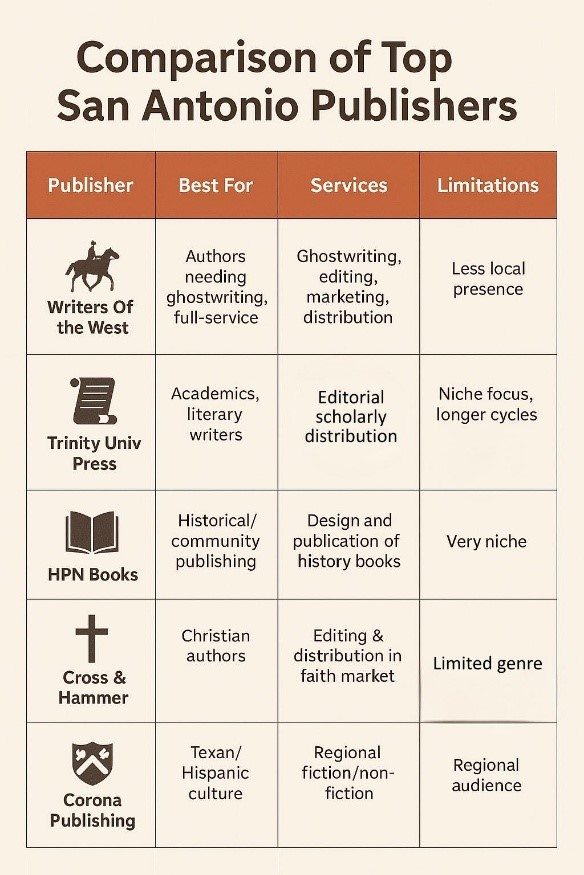
These aren’t just random names pulled from a search result. These companies are chosen for their track record, genre focus, editorial quality, and author support. If you’re serious about getting published—and doing it with people who care—this is where your short list should start.
What Genres Are Popular with San Antonio Publishers
If you want to catch a publisher’s eye in San Antonio, it helps to know what they’re already excited about. While no one wants to be boxed in by “trends,” the reality is that certain genres have carved out real staying power in this city. And no, it’s not just books about the Alamo (though there’s room for those too).
Here’s what’s hot—and what might help you land a deal faster.
Regional History and Culture
No surprise here—San Antonio is steeped in layered, complex history. Books that explore the city’s Spanish, Mexican, Indigenous, and Tejano roots are always in demand. Whether you’re writing academic nonfiction or a personal family memoir set in the area, local publishers are interested. Bonus points if you’re tapping into an underrepresented voice or a forgotten chapter of Texas lore.
Memoir and Nonfiction
There’s a huge appetite for real stories—especially ones that tie into cultural identity, immigration, activism, or faith. San Antonio publishers (and their readers) love books that are raw, grounded, and honest. If you’ve lived a story that hasn’t been told before—or can tell a familiar one in a new way—there’s space for it here.
Many premium book writers in San Antonio specialize in helping first-time authors develop these memoirs into publishable, polished works, especially if the story carries a strong cultural or emotional hook.
Christian and Spiritual Works
Faith-based publishing is alive and well in San Antonio. Whether you’ve written a devotional, a testimony, or a novel with spiritual themes, you’ll find a number of publishers open to it. Some focus strictly on Christian material, while others are more interfaith or general spiritual wellness. Either way, the audience here is present—and loyal.
Children’s Books and Young Adult (YA)
From bilingual picture books to emotionally rich YA novels, San Antonio has a healthy children’s publishing ecosystem. Corona Publishing Co. is one standout, but many indie presses also love working with authors who write for younger readers—especially stories rooted in cultural themes, family dynamics, or identity exploration.
And with San Antonio’s diverse school systems and libraries always looking for inclusive reads, there’s room for authors willing to step into that space.
Poetry and Academic Texts
Thanks to the influence of Trinity University Press and the city’s growing academic institutions, there’s a consistent market for well-crafted poetry and scholarly works. If you’re a poet or academic who wants to reach both regional and national readers, publishing in San Antonio is a viable path—especially if your work ties into the city’s cultural or historical framework.
In short: San Antonio’s genre preferences lean personal, local, and meaningful. If your manuscript brings heart, depth, or fresh cultural perspective to the table, chances are there’s a publisher ready to take a serious look.
How to Submit Your Manuscript to a San Antonio Publisher
One of the most important part of getting your book to the readers is submitting your manuscript. Unlike what most amateur writers think, it isn’t just about hitting “send.” It’s about showing publishers you understand what they’re looking for—and that you’re worth their time. San Antonio’s publishing scene may be more approachable than New York, but the expectations? Still very real.
Here’s how to do it right, without accidentally torpedoing your chances before the first page is read.
Step 1: Read the Submission Guidelines (Then Read Them Again)
This seems obvious. It’s not. Skipping this step is the #1 way authors land in the reject pile. Each publisher has slightly different submission requirements: some want a query letter and sample chapters, others want a full proposal, bio, and synopsis.
They’ll tell you exactly what to send—and in what format. Follow it like your publishing deal depends on it (because it kind of does).
Step 2: Write a Query Letter That Doesn’t Sound Like a Résumé
Your query letter is your first impression, and it shouldn’t read like corporate spam. You’re not applying for a job—you’re inviting someone to fall in love with your story.
Keep it short, clear, and tailored. Mention why you’re reaching out to this publisher specifically. Include:
- A hook: What’s your book about in 1–2 sentences?
- A brief summary: What’s the genre, word count, and target audience?
- Your credentials: Why you? Why this story?
- A thank you—and an offer to send the full manuscript if they’re interested.
Avoid clichés (“It’s the next Harry Potter!”) and never say “My mom loved it.”
Step 3: Polish, Polish, Polish
Before you submit anything, your manuscript needs to be clean. And not just spellchecked—structurally sound. Pacing, flow, character development, tone—it all has to click. This is where editors come in.
Many authors work with experienced book editors in San Antonio before submitting to local publishers. These editors understand not just storytelling but also what the publishers expect. They can help make sure your first three chapters (and your last thirty) actually hold up.
Even if a publisher offers in-house editing later, sending in a polished manuscript gives you a serious edge.
Step 4: Know Where to Look for Submission Windows
Not all publishers are open year-round. Some only accept manuscripts during specific windows—others might require an invitation or referral.
Where to watch:
- Publisher websites: Check their “Submissions” or “For Authors” pages.
- Social media: Many announce open calls or contests via Instagram or Facebook.
- Local events: Meet-the-publisher panels, festivals, and readings often offer rare access.
- Writing organizations: Groups like Gemini Ink and San Antonio Writers Guild often share leads.
Step 5: Follow Up (But Don’t Stalk)
If the publisher says you’ll hear back in 8 weeks, don’t follow up in 10 days. Give them breathing room—but don’t vanish either. If the deadline passes with no word, it’s okay to send a short, polite follow-up asking for an update.
If they pass, thank them and move on. If they’re interested—congrats. You just took the first real step toward publication. Submitting can feel like a shot in the dark, but in a city like San Antonio, the odds are better when you’ve done your homework and treat your book like the professional project it is.
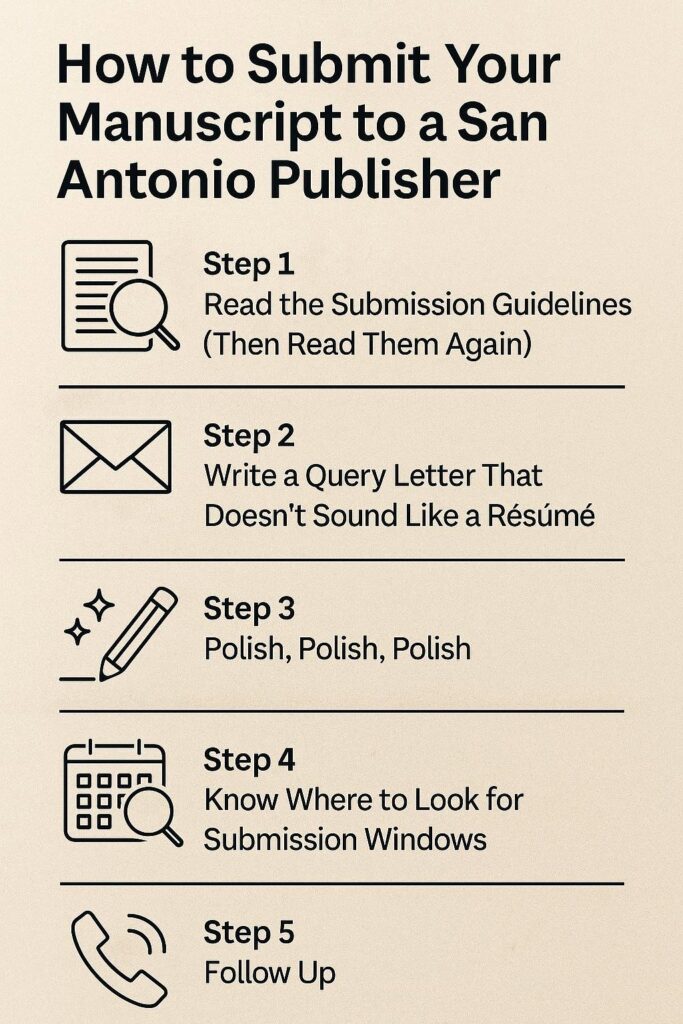
Tips for Choosing the Right Publisher in San Antonio
Finding the right publisher isn’t just about who says yes—it’s about who says yes and won’t butcher your story, steal your rights, or ghost you mid-project. San Antonio offers a unique mix of indie, hybrid, and traditional presses, but knowing which one fits you is the real win.
Here’s how to sort the gems from the junk.
Match Their Catalogue to Your Genre
Don’t pitch your sci-fi novel to a press that publishes only Texas cookbooks. Before submitting, dig into their past titles. Are they putting out books like yours? Do you like what you see? If their design looks amateur or every title reads like it was written in a rush, think twice.
If a publisher doesn’t work in your genre regularly, chances are they won’t know how to position your book—or worse, they’ll try to turn it into something it’s not.
Vet Their Communication Style Early
Send an initial enquiry and see how they respond. Are they warm, clear, and informative? Or do they hit you with a vague PDF and radio silence? The way they communicate early on often reflects how they’ll treat you throughout the process.
If they don’t seem excited to talk to authors—or take forever to reply to basic questions—that’s a red flag. Publishing is a long-term relationship. You want a partner, not a pen pal who disappears mid-conversation.
Ask About Rights, Royalties, and Timelines
Let’s be blunt: if a publisher can’t clearly explain your royalty split, how long they’ll need to publish your book, or what rights they’re asking for—run.
You should know:
- Will they own the copyright or will you?
- What’s the royalty percentage—and is it net or gross?
- How long until your book is live?
- Can you terminate the contract if things go south?
Professional publishers will spell this out up front—and they won’t flinch when you ask for details.
4. Check Their Editing and Design Standards
Great publishers invest in great editors and designers. Ask to see samples of books they’ve edited or designed recently. Does the layout look clean? Are the covers strong? Typos and clunky formatting are not “creative choices”—they’re signs of low standards.
Some publishers partner with professional book editors in San Antonio or the top local talent. Others cut corners. You can often spot which is which from a 30-second flip through their catalogue.
5. Get Author References (Seriously, Do It)
Ask the publisher if you can speak to one or two of their past authors. If they say yes—awesome. If they dodge the question, you just learned something valuable. Real author experiences are where you’ll hear the truth: Was the process smooth? Did deadlines get hit? Did they feel respected?
Writers talk. And in the San Antonio publishing scene, a quiet warning from a fellow author is worth listening to.
Choosing a publisher is one of the biggest decisions you’ll make for your book. Don’t let convenience, flattery, or slick branding cloud your judgement. Dig in, ask questions, and be picky. Your book deserves a team that treats it like the real deal.
FAQs About Publishing in San Antonio
Do I need an agent to get published in San Antonio?
Nope. Most local publishers accept direct submissions. Agents can help if you’re aiming for national houses, but many San Antonio publishers are small to mid-sized and actually prefer working directly with authors.
How long does the process take?
From submission to publication, timelines vary wildly. A traditional press might take 12–18 months, while a hybrid or indie publisher could move in 3–6 months—assuming your manuscript is polished and ready. Add time for revisions, design, and printing if needed.
Will my book be in bookstores?
Possibly—but not automatically. Some publishers have strong relationships with local bookstores, while others focus more on online distribution. If brick-and-mortar presence matters to you, ask your publisher directly about their retail partnerships.
What’s the difference between editing included in publishing vs. hiring a separate editor?
Great question. Some publishers include light editing or proofreading as part of their package. Others expect you to come in with a clean manuscript. Many authors choose to work with premium book writers in San Antonio beforehand to get a professional-level polish—especially for complex genres like memoir, business, or literary fiction.
Who owns the rights to my book?
It depends on your contract. With traditional publishers, they often hold rights for a period of time. With hybrid or indie presses, you’re more likely to retain full ownership. Always read the fine print. If you’re unsure, get a literary attorney—or at least someone who’s been through the process—to review your contract.
Can I do my own marketing?
Absolutely. In fact, many authors do—especially in the indie world. Publishers may help with press releases, social media, or event setup, but your personal network is a powerful tool. The more involved you are in promotion, the better your book will perform.
Should I publish locally or go national?
There’s no one-size-fits-all answer. Local publishers offer more personalized attention, community support, and face-to-face connections. National publishers have broader reach and bigger budgets—but way more competition. If your book speaks to a regional audience or you’re just starting out, San Antonio can be the perfect launch pad.
Conclusion
San Antonio’s publishing scene blends cultural depth, supportive community, and real opportunities for emerging authors. Whether you’re writing memoir, history, children’s books or poetry, local publishers offer strong editorial support, creative collaboration, and approachable submission paths. With premium book publishing services in San Antonio like Writer of The West available to polish and guide your work, the city is an underrated but powerful launchpad for your author journey.

